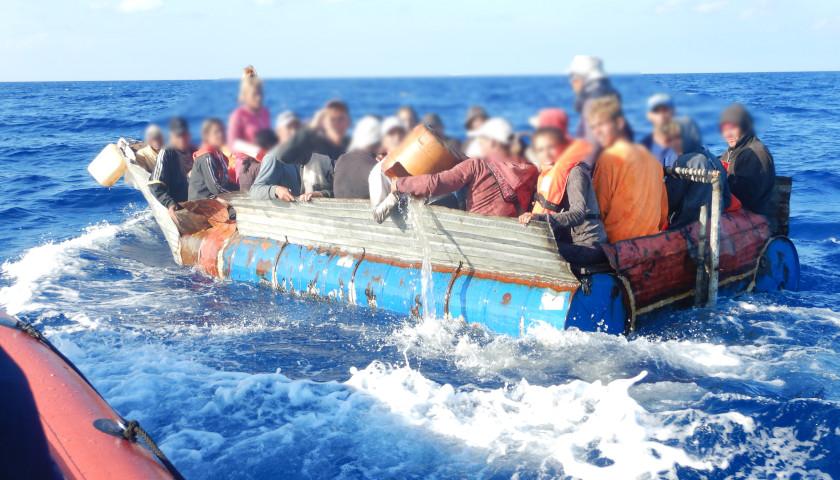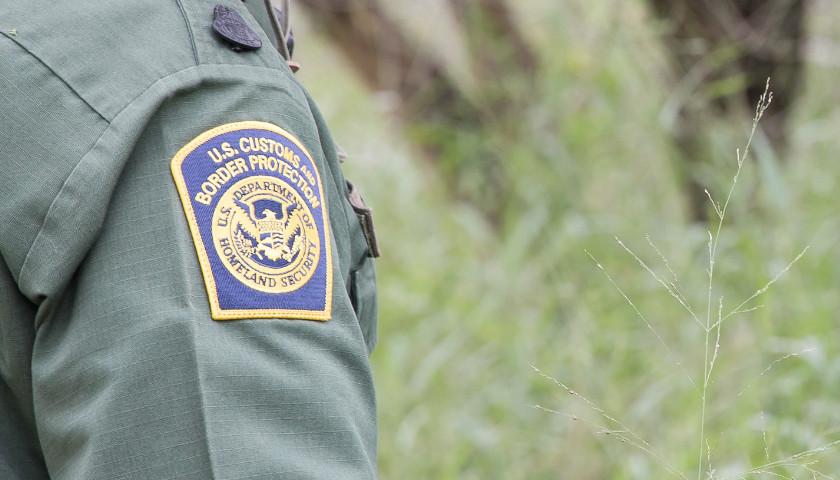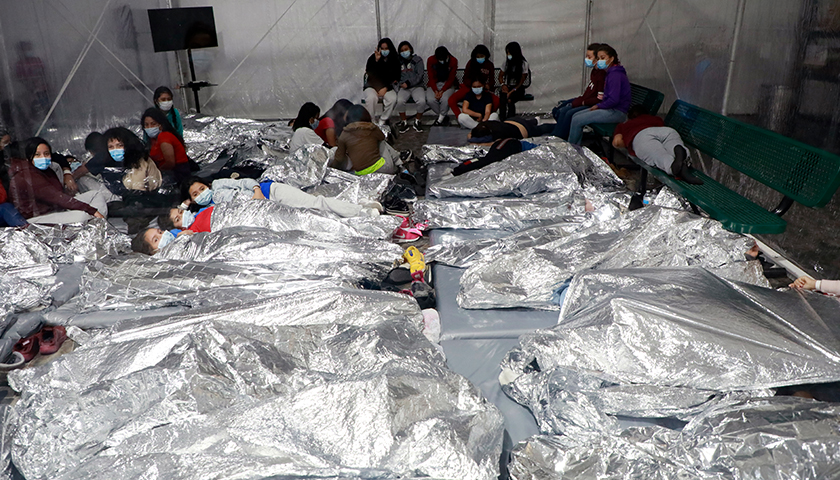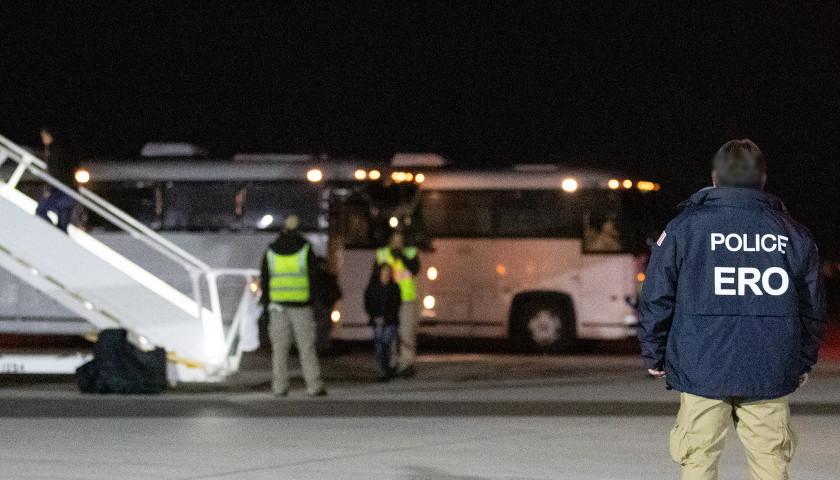by Bethany Blankley
While much of the focus has been on the southern border ahead of the public health authority Title 42 ending May 11, Title 42 never applied to those interdicted at sea.
And a new policy implemented April 27 makes Cubans and Haitians attempting to enter illegally by sea indefinitely disqualified from a new Department of Homeland Security parole process.
“Regardless of nationality,” those who are interdicted at sea “will be repatriated to their country of origin, returned to their country of departure, or resettled in a third country in accordance with polices and plans governing maritime migration in the Florida Straits and the Caribbean Sea,” the Coast Guard reiterated again this month in an announcement.
Anyone attempting to illegally enter the U.S. by sea, including through U.S. territories, “will be apprehended by Border Patrol and will be subject to expedited removal.”
Despite the warning, people from China, Cuba, Ecuador, Haiti, Jamaica and the Dominican Republic continued to land off the Florida coast in the past few weeks and were caught.
While Miami Sector Border Patrol apprehensions were down in April from previous months, Coast Guard numbers were still high.
Last month, Miami Sector Border Patrol agents apprehended 198 illegal foreign nationals and reported 377 who turned back to sea, according to data obtained by a Border Patrol agent on condition of anonymity for fear of reprisal. Miami Sector agents also reported 25 gotaways – those who entered illegally and evaded capture, and 417 “outstanding,” meaning they aren’t sure.
Agents also continued to apprehend foreign nationals in Monroe County, which includes the Florida Keys. In Islamorada, between Miami and Key West, on May 18, Border Patrol agents responded to a migrant landing and encountered 23 Cubans. They were taken into federal custody and processed for removal proceedings.
Roughly two weeks prior, in the same area on May 3, a local resident discovered 16 bricks of cocaine, weighing 41 pounds, floating at sea and contacted authorities. Border Patrol seized the bricks, worth an estimated street value of $640,000.
Farther north, on May 15, on the barrier island of Sunny Isles Beach in Miami-Dade County, Border Patrol agents and law enforcement partners responded to a suspected maritime smuggling event and encountered four Chinese nationals who’d illegally entered the U.S. Then Border Patrol later announced that they took into custody 10 Chinese nationals.
Farther south, in the lower Florida Keys, on May 13, Border Patrol agents and Monroe County Sheriff’s Office deputies responded to a migrant landing near Geiger Key, about five miles east of Key West, and apprehended eight Cubans who’d arrived on a homemade vessel.
And near Key Biscane, Border Patrol agents and Homeland Security Task Force Southeast agents interdicted a maritime smuggling event and apprehended 13 illegal foreign nationals from China, Ecuador, Cuba, Jamaica and the Dominican Republic.
Meanwhile, U.S. Coast Guard Southeast crews from April 28 to May 5 halted six illegal ventures and repatriated 276 people to four countries: 27 to Cuba, 166 to Haiti, 66 to the Bahamas and 75 to the Dominican Republic.
Coast Guard crews maintain “a continual presence with air, land and sea assets,” and work with local law enforcement and good Samaritans. One successful interdiction resulted from the Miami-Dade Police Department notifying a Coast Guard crew “about a recreational boat moored at Crandon Park with suspected migrants aboard.” Another involved a good Samaritan who called in a “pleasure craft about 35 miles southeast of West Palm Beach with suspected migrants aboard.”
From May 13-May 19, Coast Guard crews repatriated 327 people, including 169 to Cuba and the Bahamas who attempted to arrive in nine separate voyages within a few days.
“Our maritime borders are closed,” Capt. Benjamin Golightly, Operation Vigilant Sentry incident commander, said in a statement last week.
He also encouraged Cuban, Haitian, Bahaman, and Dominican family members and friends to share the warning: “The voyage is dangerous, and you could lose your life. You will be interdicted, then repatriated to your country of origin, or where you departed from.”
According to Coast Guard records, from Oct. 1, 2022, to May 17, 2023, Coast Guard crews interdicted or encountered 6,679 Cubans and 4,473 Haitians.
– – –
Bethany Blankley is a contributor to The Center Square.
Photo “Illegal Cubans and Haitians” by USCGSoutheast.








